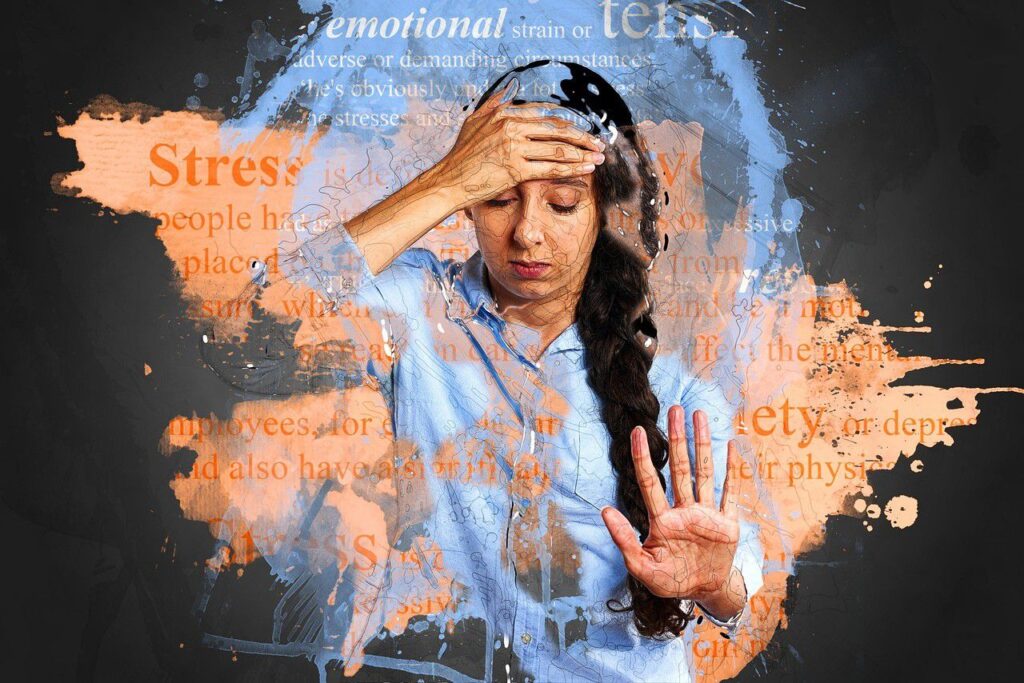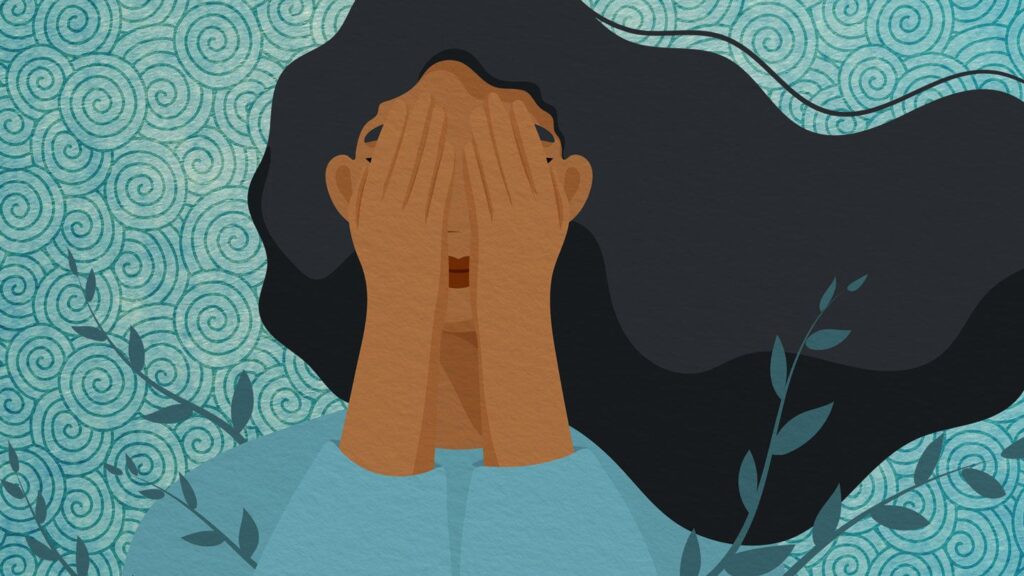Depression is a common and serious mental health disorder that affects how a person feels, thinks, and handles daily activities. It is more than just a bout of the blues or a temporary feeling of sadness; it is a persistent condition that requires proper diagnosis and treatment. Understanding all the symptoms of depression is crucial for early detection and effective management. This article explores all the 16 symptoms of depression in detail, covering emotional, cognitive, physical, and behavioral aspects. Without further wasting time, let’s dive deep into this.
Also Read: 9 High Blood Pressure Symptoms You Should be Worried About!

Emotional Symptoms
Depression primarily affects a person’s mood and emotions. Four key emotional symptoms of depression are as follows:
Loss of Interest or Pleasure (Anhedonia)
People with depression often lose their interest in activities they once enjoyed. This can include hobbies, social interactions, work, and even sex. This lack of interest and pleasure is known as anhedonia and is a significant indicator of depression.
Persistent Sadness
One of the hallmark symptoms of depression is a pervasive feeling of sadness or emptiness. This feeling is often constant and can last for weeks, months, or even years. The individual may feel tearful, hopeless, and overwhelmed by a sense of despair.
Feelings of Worthlessness or Guilt
Individuals with depression may experience intense feelings of worthlessness, self-loathing, or inappropriate guilt. They may fixate on past failures, mistakes, or personal shortcomings, often feeling excessively responsible for negative events.
Irritability or Frustration
While sadness is a common symptom, some people with depression may also experience increased irritability, frustration, or anger. These feelings may be directed toward themselves or others and can occur even over small matters.
Don’t Miss: 10 Low Blood Pressure Symptoms You Should be Worried About!
Cognitive Symptoms
Depression can significantly affect cognitive functions, leading to difficulties in thinking, concentration, and decision-making. Four key cognitive symptoms of depression include:
Difficulty Concentrating
People with depression often struggle to focus, remember details, or make decisions. This cognitive impairment can affect their performance at work or school and interfere with daily tasks.
Indecisiveness
Depression can make even simple decisions feel overwhelming. Individuals may take longer to make choices or avoid decision-making altogether, leading to increased stress and frustration. Indecisiveness is one of the most common cognitive symptoms of depression.
Negative Thinking Patterns
Depression often involves persistent negative thoughts, such as pessimism about the future, self-criticism, and a general sense of hopelessness. These negative thinking patterns can reinforce feelings of sadness and despair.
Suicidal Thoughts
In very extreme cases, depression can lead to thoughts of self-harm and even suicide or death. These type of thoughts may range from a passive wish to die to active planning and attempts. Suicidal ideation is a medical emergency that requires immediate attention and intervention.
Also Read: All Symptoms of Diabetes – Type 1, Type 2 & Gestational!

Physical Symptoms
Depression is not just a mental or emotional condition; it can also manifest in physical symptoms. Some of the most common physical symptoms of depression are described below.
Changes in Sleep Patterns
Depression can disrupt sleep in various ways. Some individuals may experience insomnia and find it difficult to fall asleep or stay asleep. Others may sleep excessively, a condition known as hypersomnia. Both types of sleep disturbances can exacerbate other symptoms of depression.
Changes in Appetite and Weight
Depression can cause significant changes in appetite that leads to unhealthy weight loss or gain. Some individuals may lose interest in food and eat less, while others may turn to food for comfort and eat more than usual. These changes can impact physical health, weight and energy levels.
Fatigue and Low Energy
One of the most crucial physical symptoms of depression is persistent fatigue or a lack of energy. This feeling of exhaustion can be present even after a full night’s sleep and can make it difficult to engage in daily activities or exercise.
Physical Aches and Pains
Depression can cause unexplained physical symptoms such as headaches, stomach-aches, and muscle or joint pain. These physical manifestations are often resistant to standard treatments and can further impact a person’s quality of life.
Don’t Miss: 10 Dehydration Symptoms You Should Be Worried About!
Behavioral Symptoms
Depression can also affect behavior, leading to changes in how a person interacts with others and engages in daily activities. Behavioral symptoms of depression include:
Withdrawal from Social Activities
Individuals with depression may withdraw from social interactions and activities they once enjoyed. This can include avoiding friends, family, and social events, which can lead to increased feelings of isolation and loneliness.
Decreased Productivity
Depression can significantly impact a person’s ability to perform tasks at work or school. This decreased productivity can be due to a lack of concentration, motivation, or energy, and it can lead to poor performance and additional stress.
Increased Use of Substances
Some individuals with depression may turn to alcohol or drugs to cope with their symptoms. This increased use of substances can lead to addiction and further complicate the person’s mental and physical health. It’s one of the most common symptoms of depression that you may have noticed in many depressed individuals.
Neglecting Personal Care
People with depression may neglect their personal care and hygiene. This can include not showering, grooming, or dressing appropriately. This neglect can further contribute to feelings of worthlessness and self-neglect.

Symptoms in Different Populations
Depression can affect people of all ages and backgrounds, but the symptoms can vary among different populations. Understanding these variations is important for accurate diagnosis and treatment.
Children and Adolescents
In children and adolescents, depression may present with irritability, anger, and behavioral issues rather than sadness. They may also experience physical symptoms such as stomachaches and headaches, and there may be a noticeable decline in academic performance and interest in activities.
Older Adults
Depression in older adults is often underdiagnosed because it can be mistaken for normal aging or other medical conditions. Symptoms of depression may include memory problems, physical aches, and fatigue. Older adults may also experience significant changes in sleep patterns and appetite.
Men vs. Women
While depression can affect both men and women, they may experience and express symptoms differently. Women are more likely to report feelings of sadness, worthlessness, and guilt, while men may exhibit irritability, anger, and risk-taking behaviors. Men are also less likely to seek help for depression, which can lead to underdiagnosis and untreated symptoms.
Diagnosing Depression in a Nutshell
Diagnosing depression basically involves a comprehensive evaluation by a healthcare professional. This includes a detailed medical history, a physical examination, and a psychological assessment. The criteria for diagnosing depression, as outlined in the Diagnostic and Statistical Manual of Mental Disorders (DSM-5), include experiencing five or more symptoms for at least two weeks, with at least one of the symptoms of depression being either depressed mood or loss of interest or pleasure.
The Bottom Line
Depression is a complex and multifaceted disorder that affects emotional, cognitive, physical, and behavioral aspects of an individual’s life. Recognizing the symptoms of depression is crucial for early detection, intervention and effective treatment. If you or someone you know is experiencing symptoms of depression, it is very important to seek help from a healthcare professional. With proper diagnosis and treatment, individuals with depression can manage their symptoms and improve their quality of life. Hopefully, you found this article helpful enough. Thanks for visiting and appreciating our work.
